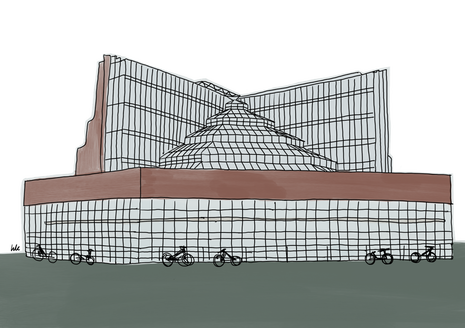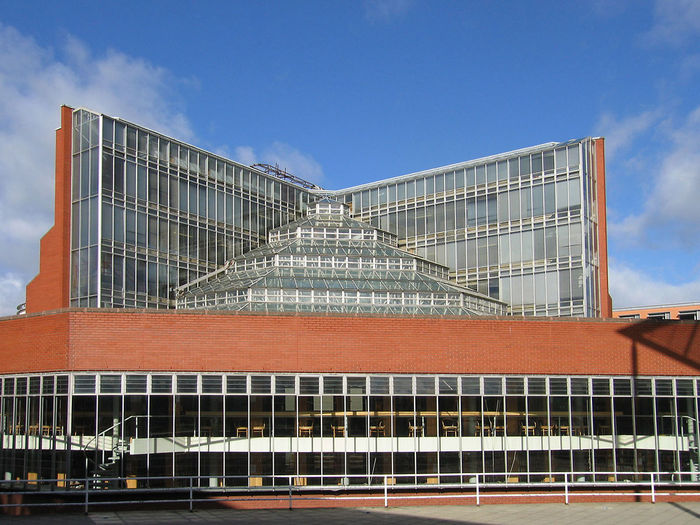A model for modern academic integrity? A dive into the performance of the new History tripos
Caitlin Parry examines the reformed History course and how it encourages a sustainable, but enriching learning experience

Cambridge is sometimes accused of antiquated approaches to undergraduate teaching. Such accusations include that of an English curriculum, overwhelmingly dominated by white male authors from years long gone by, or that pre-clinical medicine students are only exposed to theoretical sciences rather than the hands-on practices that make up such a vital component of doctor training. The university, perhaps, is often slow to move away from long-established academic norms. So, when the History Faculty announced its plans for a revamped tripos, the 2022 fresher cohort was given the opportunity to experience one response to said allegations.
Professor Andrew Arsan, Director of Undergraduate Studies in the Faculty, claimed in November that the new course should “provide a broad, inclusive curriculum” that also “helps students to gain a more global sense of the past and a more holistic understanding of their chosen geographical area or period”. Having just finished my first year of the new historical tripos, I can personally attest to these successes and shortcomings.
What was wrong with the old course? Paper structures for a start: choices included ‘British political history, 1485-1714’, ‘British economic and social history, 1700-1880’ and ‘European history, 1715-1890’. Such definitional angles fail to accommodate interdisciplinary approaches. As one of my supervisors recognised, people didn’t wake up and think, “Today, I will behave in a ‘British history 1485-1714’ sort of way”, or a ‘British economic and social history, 1050-c.1500’ one. Such boundaries of the lived experience simply didn’t – and still don’t – exist. The course was also liable to accusations of Eurocentrism, and Anglocentrism in particular: European history was taught in narrower categories of timeframe, British history even more so. To study the history of a country or people outside of this particular geography as part of the most content-heavy papers, you would have to pick one of only four non-European modules. Those with an interest in British history could pick between ten.
“The old tripos also enforced the stringent workloads and deadlines that form the substance of nightmares”
The old tripos also enforced the stringent workloads and deadlines that form the substance of nightmares – no doubt comparable to the workloads of those undertaking several other courses, but still enough to cause the stress that Cambridge is famed for. An incoming third-year has highlighted problems of the old course, lamenting that “our teaching of handling sources is actually very minimal” and that it “appears as though there have been gaps in the course” whereby papers such as the Historical Argument and Practice Paper are taught in first year and then neglected until finals. In other words, there seems to have been a lack of teaching consistency that could in turn maximise stress.
First years now study two content-heavy papers – ‘outlines’ – which encompass the majority of the year’s reading and are assessed via exams in April. There is also a ‘sources’ paper, where students focus on a niche topic via a bundle of pre-selected primary sources, discussed in seminars during Easter. ‘Introduction to Historical Thinking’ (IHT), taught in college twice a term during Michaelmas and Lent, completes the first years’ course of study; historians analyse a secondary historical text within supervisions. Requirements to study a history of political thought paper have also disappeared: first years must simply study a pre- and post-1750 outline and have free choice for the remainder of their degrees.
“The new tripos is also less guilty of aforementioned definitional sins”
The new tripos is also less guilty of aforementioned definitional sins, no longer succumbing to thematic principles and instead offering papers such as ‘Later Medieval Europe’, ‘Modern Britain and Ireland, 1750-present’ and ‘The Twentieth Century World’. This surely allows students to approach topics more broadly and take their reading in the direction they so wish.
But of course, every reform has teething problems. An incoming second-year speaks of a “lack of confidence among the faculty members” that the structure would be easy for students to understand. This led to “some miscommunication or misunderstandings”, and there also seemed administrative confusion over deadlines: nobody seems sure if or when they have to resubmit the coursework they drafted in Easter term. My supervisors also had different approaches to the Faculty’s word count that required weekly essays to be of only 1500 words. A fellow historian was reprimanded for exceding 30 words; for others, a couple of hundred extra were the norm. The approach to the sources paper also seemed ill-considered: we weren’t allowed support in writing the final essay but instead were told to seek the support of fellow college historians. Some colleges only have a few historians per year, while others have formed large groups consisting of the dozen.
But perhaps the most interesting reform of all is its timetable. We’re perhaps all familiar with the ongoing reading week debate: stressed students demand a week off to starve off notorious ‘week five blues’, Cambridge refuses on the basis of some sort of ill-defined need to upkeep ‘academic integrity’, and students accuse the institution of prioritising results over mental health. The new tripos offers a compromise. Two weeks of Michaelmas and Lent are spent covering the IHT, which makes fewer academic demands. I was told to complete about 300 pages of reading during each of these weeks instead of over the 1,000 expected ordinarily. Arsan claimed that the faculty has aimed to reduce the weekly workload from 38-42 hours to between 35 and 37; attention has thus clearly been paid to the importance of student wellbeing and the necessity of a work-life balance.
It is, of course, still early days. We’ve been frequently asked to provide feedback so that changes can be made; time will tell if responses are used to enhance the experience of incoming history freshers. But perhaps it is the principle that underpins the reform that is the biggest story here. An agreement over a need for change: the concession to periods of lightened workloads, and the collaboration to deliver an academically intense, but sustainable learning experience. The new tripos makes a step in the right direction, but there’s perhaps still some way to go before historians feel fully supported and satisfied.
 News / Cambridge students set up encampment calling for Israel divestment6 May 2024
News / Cambridge students set up encampment calling for Israel divestment6 May 2024 News / Cambridge postgrad re-elected as City councillor4 May 2024
News / Cambridge postgrad re-elected as City councillor4 May 2024 News / Some supervisors’ effective pay rate £3 below living wage, new report finds5 May 2024
News / Some supervisors’ effective pay rate £3 below living wage, new report finds5 May 2024 Fashion / Class and closeted identities: how do fits fit into our cultures?6 May 2024
Fashion / Class and closeted identities: how do fits fit into our cultures?6 May 2024 News / Academics call for Cambridge to drop investigation into ‘race realist’ fellow2 May 2024
News / Academics call for Cambridge to drop investigation into ‘race realist’ fellow2 May 2024






